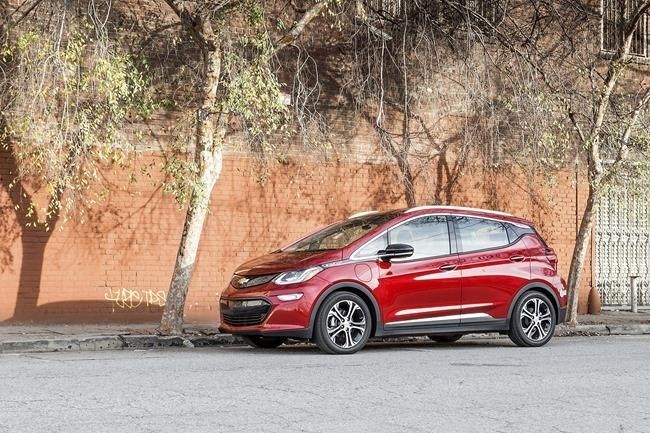Edmunds: Five things you need to know before buying a used EV

Buying any car is complicated. Want to make it even more complicated? Consider buying a used electric vehicle.
There are good reasons to consider a used electric vehicle. Perhaps you want an EV as an additional household vehicle — for your teenager who just started to drive, perhaps — or as a replacement for a vehicle you already own. But there are additional aspects about buying an EV that you’ll need to consider in order to get the best value. The car experts at Edmunds have put together five tips on what you need to know.
RESEARCH THE POSSIBLE FUEL COST SAVINGS
An EV typically costs less to charge and drive than paying to fill up the tank of a gas- or diesel-powered car. That can help you save money in your monthly fuel bills. But you’ll need to crunch some numbers to find out how much.
The EPA’s fueleconomy.gov website is a helpful resource for comparing the efficiency and annual fuel costs of different vehicles. Make sure to enter personalized information about how much you’ll be paying for electricity. Unlike the relatively stable pricing of gasoline, electricity costs vary widely depending on where you live and how you charge. Check out Edmunds’ How Much Electricity Does an Electric Car Use? article for additional information.
CERTAIN USED EVS QUALIFY FOR A TAX CREDIT
Starting in January 2023, the IRS revised its policy on EV tax credits on used vehicles purchased for $25,000 or less. Eligible vehicles qualify for a tax credit of 30% of the purchase price up to a maximum of $4,000. There are many caveats, but the eligible vehicles list is quite generous.
Perhaps the biggest limitations are that you must buy from a licensed dealer and the vehicle must be a model year at least two years earlier than the calendar year when it is purchased. You can learn more from the IRS’ Used Clean Vehicle Credit page and the EPA’s search function for eligible vehicles.
USED EVS WILL HAVE LESS RANGE THAN WHEN NEW
The federal government requires EV manufacturers to warranty their batteries for eight years or 100,000 miles. That means battery life is a consideration, but it’s probably not the biggest one. An analysis of 6,300 EVs by the fleet-tracking firm Geotab concluded that the rate of battery degradation of the EVs it tracked was slower than the usable life of the vehicle. The average rate of decline in Geotab’s tracked vehicles was 2.3% per year.
This is something to consider, especially as many used EVs didn’t have a bunch of range to begin with. For example, at the 2.3% degradation rate, a 2020 Hyundai Ioniq EV that had a 170-mile maximum range when new might be down to 150 miles after five years. Ambient temperature, climate control use, driving style and terrain greatly influence range as well.
BUT THAT RANGE CAN STILL BE ENOUGH
According to the Federal Highway Administration, Americans drive about 37 miles daily on average. That’s well below the maximum range of EVs. But if that’s all we did, EVs would make sense for everyone. Only you can know how many miles you need to drive daily, or what you want an EV to be capable of doing.
A used EV can be a great addition to a household that already owns another vehicle. Many families buy an EV to use as a daily commuter if they have another vehicle that will work when longer range is needed. That strategy saves money on energy costs and may allow them to buy a less costly EV with a shorter range.
FACTOR IN THE COST OF HOME CHARGING INSTALLATION
Owning an EV is the easiest when you can charge it at home. Charge times are dependent on many factors, but we recommend getting a home 240-volt charging setup. It’s a lot quicker and convenient than trying to charge an EV with a regular 120-volt power cord or relying on public charging stations. A new home charger — these devices are formally known as electric vehicle supply equipment, or EVSE — typically cost $200 to $600 and require 240-volt wiring or an equivalent power outlet. If your garage lacks a 240-volt power source, you’ll need to factor in the possible installation costs as well.
EDMUNDS SAYS
Few car purchases are made purely on logic, but thinking through the factors here will guide you to a more informed decision about buying a used EV.
____
This story was provided to The Associated Press by the automotive website Edmunds.
Josh Jacquot is a contributor at Edmunds.



